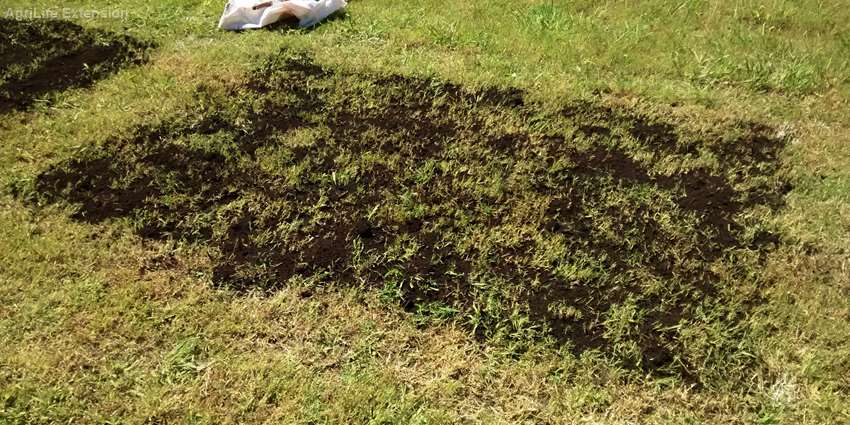A team of Texas A&M AgriLife Extension Service experts has initiated the first research trials on ornamental turfgrass varieties applying Earth-Kind Landscaping principles, which emphasize environmental responsibility through water conservation and limited chemical inputs.
The trials will be conducted over a period of several years at Myer’s Park and Event Center, a 158-acre site near McKinney. The park is also the site for several Earth-Kind research and demonstration gardens where trials are being conducted on perennials, annuals, herbs, shrubs, grapes, crape myrtles and vegetables.
“Earth-Kind is a registered trademark of AgriLife Extension,” explained Dr. Steve George, AgriLife Extension landscape specialist at the Texas A&M AgriLife Research and Extension Center in Dallas. “Earth-Kind principles have been in use since the 1990s and focus on lower water use and a reduction in fertilizers and pesticides. There are years of research behind these principles and now they are going to be applied to test turfgrass varieties. ”
George, who developed the Earth-Kind Environmental Landscape Management System, said to his knowledge this will be the first time anyone has ever conducted research trials on ornamental turfgrass using Earth-Kind principles.
According to experts, in urban areas exterior irrigation is estimated to account for as much as 60 percent of household water use, with the majority of that used for turfgrass irrigation.
Dr. Matt Elmore, AgriLife Extension turfgrass specialist at the Dallas center and lead investigator on the trials, said the trials are being conducted in response to both turfgrass industry interest and for practical application by homeowners.
“We’ll be looking at things like how much water the different species need to remain green, as well as examine their overall durability and drought tolerance and how well they perform with limited chemical inputs,” Elmore said.
“The research will examine which turfgrasses have the strongest genetics and how well they respond in different soil preparations. The overall goal is to find management techniques that improve turfgrass density and durability with limited fertilizer and chemical inputs.”
Elmore said the trials are being conducted on 20 plots, representing five treatments and four replications, of commonly used Bermuda grass varieties.
“In the future, we hope to add St. Augustine and zoysia grass varieties for testing as well,” he said.
Continue reading the AgriLife TODAY news release for more information.

